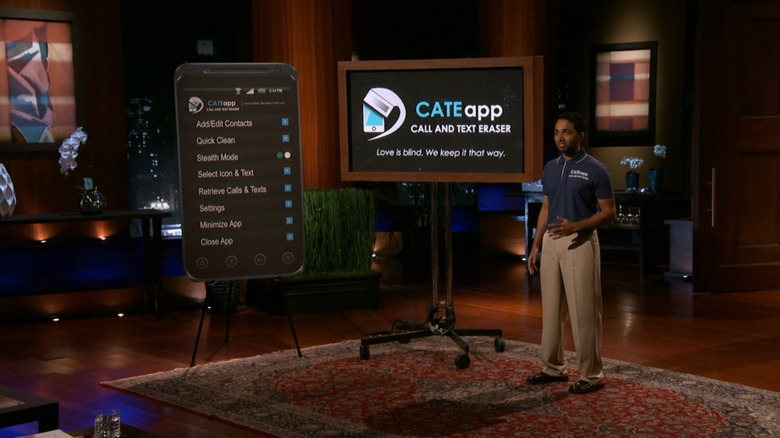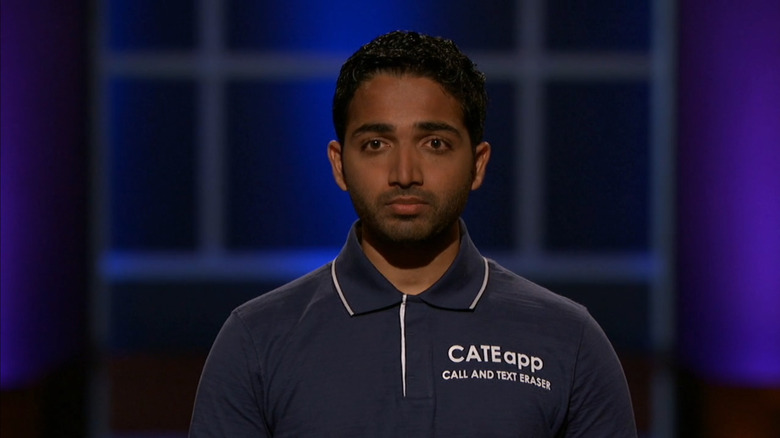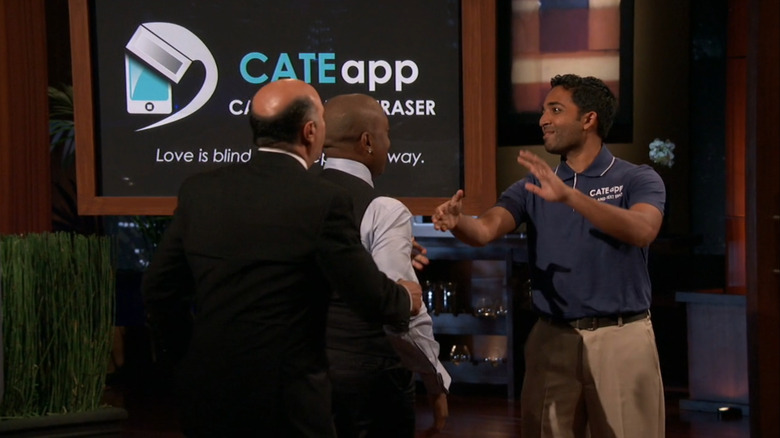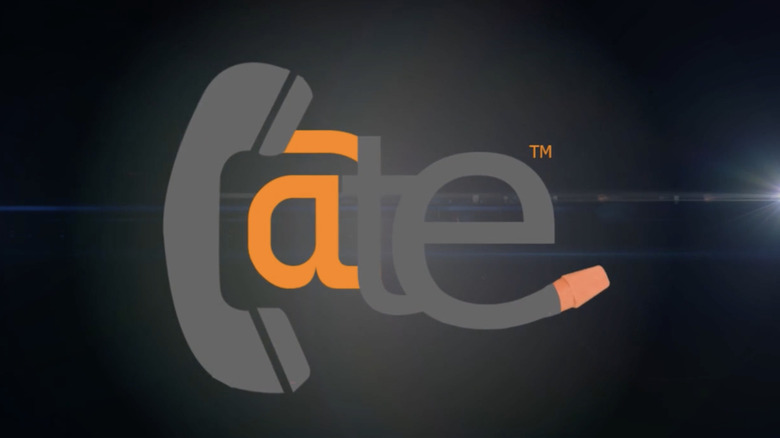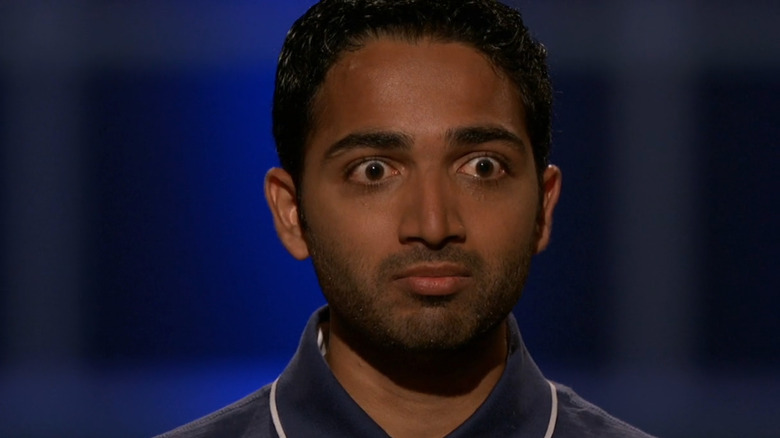What Happened To The CATE App From Shark Tank Season 4?
The second episode of the fourth season of "Shark Tank" premiered on ABC on September 21, 2012, to 5.88 million viewers. The last pitch of the week was for the CATE App, short for "Call and Text Eraser App." It's a smartphone app that masked notifications for calls and text messages from a blacklist of contacts. In practice, it was positioned as an app for people who were cheating on or suspected of cheating on their partners, even if it had other potential privacy applications.
Some of the Sharks had some pause about the app, in part for moral reasons, and pulled out, but a few showed interest. CATE App owner Neal Desai found himself playing a tandem offer from Kevin O'Leary and Daymond John opposite one from Barbara Corcoran, with the latter contingent on being rebranded as a privacy app without the overt infidelity connotations. After a lot of back and forth where they started far apart on the valuation and equity, he made a deal with Kevin and Daymond, with Kevin's software industry experience seemingly being the deciding factor.
So, what happened from there? Did the CATE App continue to position itself as being for cheaters? Did it stick around for the long haul, or is it just a relic of an era of Shark Tank where a Blackberry version of the app had to be developed? Read on to find out.
What happened to CATE App on Shark Tank?
Neal Desai entered the titular Shark Tank as the final entrepreneur of the second episode of season four of "Shark Tank" seeking $50,000 for 5% of his company, although he soon admitted that he knew that would just be a vague starting point for negotiations. His app, though technically being promoted mainly for those cheating or suspected of cheating on their partners, had other potential privacy applications: It works by letting you build a blacklist of contacts whose calls and text messages will not light up your screen with notifications. It was already possible to disable app notifications on Android, but much more difficult to disable them for a specific contact. CATE App treated the blacklisted contacts more like how spam numbers are blocked on Android.
Robert Herjavec dropped out because he didn't like the cheating angle, while Mark Cuban did as well because just plain didn't like the app. Kevin O'Leary seemed most interested, in part because he was good friends with the owner and proprietor of "a website that promotes cheating," ostensibly referring to Noel Biderman of AshleyMadison.com. Between that and other applications, like for executives who don't want sales report notifications popping up on their phones, Kevin was willing to pay $50,000 for 50% and agreed to let Daymond John in on splitting that deal, while Barbara Corcoran offered $50,000 for 30% contingent on rebranding as a privacy app.
After some negotiations back and forth, Barbara dropped to 25% for $50,000, while Daymond and Kevin went down to 35%. Neal told Daymond and Kevin that they had a deal at $70,000 for 30%, and they agreed.
CATE App after Shark Tank
CATE App got some media attention in the immediate aftermath of being featured on "Shark Tank," with Neal Desai and business partner Jay Leopardi, giving interviews to The Sunday Times in October 2012. "It's a privacy app, essentially, and as with every technology that involves privacy, there is good with the bad," Desai told the Times. "Drug dealers and cheaters might use it because that comes with the territory of privacy. But it is also labeled a privacy application and could have uses for government officials, or corporate business, or for lawyers whose entire business is based on keeping things confidential."
Leopardi, meanwhile, added that 70% of their customers so far had been women. "It could be that women cheat more, or there are lots of bullish men out there who are accusing their girlfriends of cheating when they speak to any other man," he told the Times. The Wall Street Journal also ran a brief quote from Pesai in an article about smartphone privacy features and infidelity in January 2013.
As for the deal with Kevin and Daymond? It's unclear if it closed. On one hand, though those two Sharks don't publish complete lists of their investments from the show, they did both promote the Wall Street Journal article on Twitter. Since that was roughly seven months after the episode was shot, one would think that was a sign that the deal closed, but it doesn't seem that simple, and some "Shark Tank" blogs assert that it never did.
Is CATE App still in business?
Retweeting Daymond was the last thing the official CATE account ever tweeted and the account had barely tweeted since the "Shark Tank" episode in question had aired, regardless, sitting dormant for months before the retweet. Going by Wayback Machine caches, it looks like the CATEapp.com website was still alive through late 2014, albeit with no indications that the business was still active.
The official CATE App blog, meanwhile, was never updated past October 2012. The site's frequently asked questions page, meanwhile, also reveals something that Desai was not entirely truthful about on "Shark Tank": There was only an Android version of the app available, even after the premiere of the episode, where he explicitly said that there were also iPhone and Blackberry versions available. By all appearances, this ceased being a functioning business not long after the episode premiered, with Daymond and Kevin's Twitter endorsements being the only lingering question marks.
What's next for CATE App's founder?
In the decade or so since CATE App fell off the face of the Earth, Neal Desai appears to have joined it. There are no traces of him online whatsoever that don't have to do with the original promotion of CATE App. He doesn't have a personal social media presence, and while there are various Neal Desais on LinkedIn, none of them appear to be the one behind CATE App. There's nothing in all of the old coverage of the app that provides that corporate name that Desai was using for CATE App, so there are no leads to follow in that direction, either. At least in terms of having any kind of internet presence, Neal Desai is a ghost.
All told, this "Shark Tank" update is a bit of a mystery: It overall has the air of the deal not being closed, but the Sharks who made the on-air preliminary deal did promote CATE App on social media months after the episode premiered. So if they did close the deal, why did everything fall apart so quickly? Unless Neal Desai rematerializes online, we probably won't ever get to find out.
